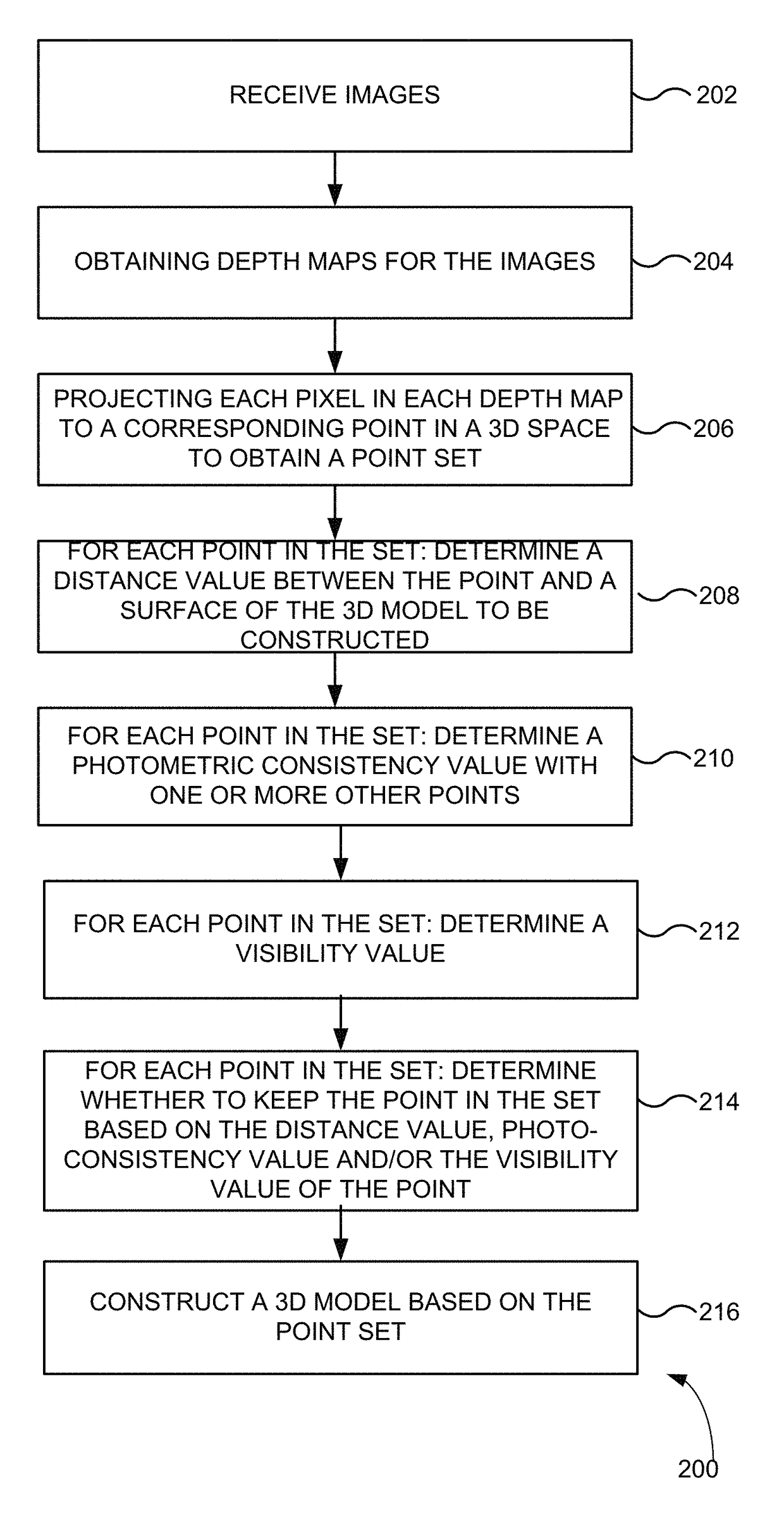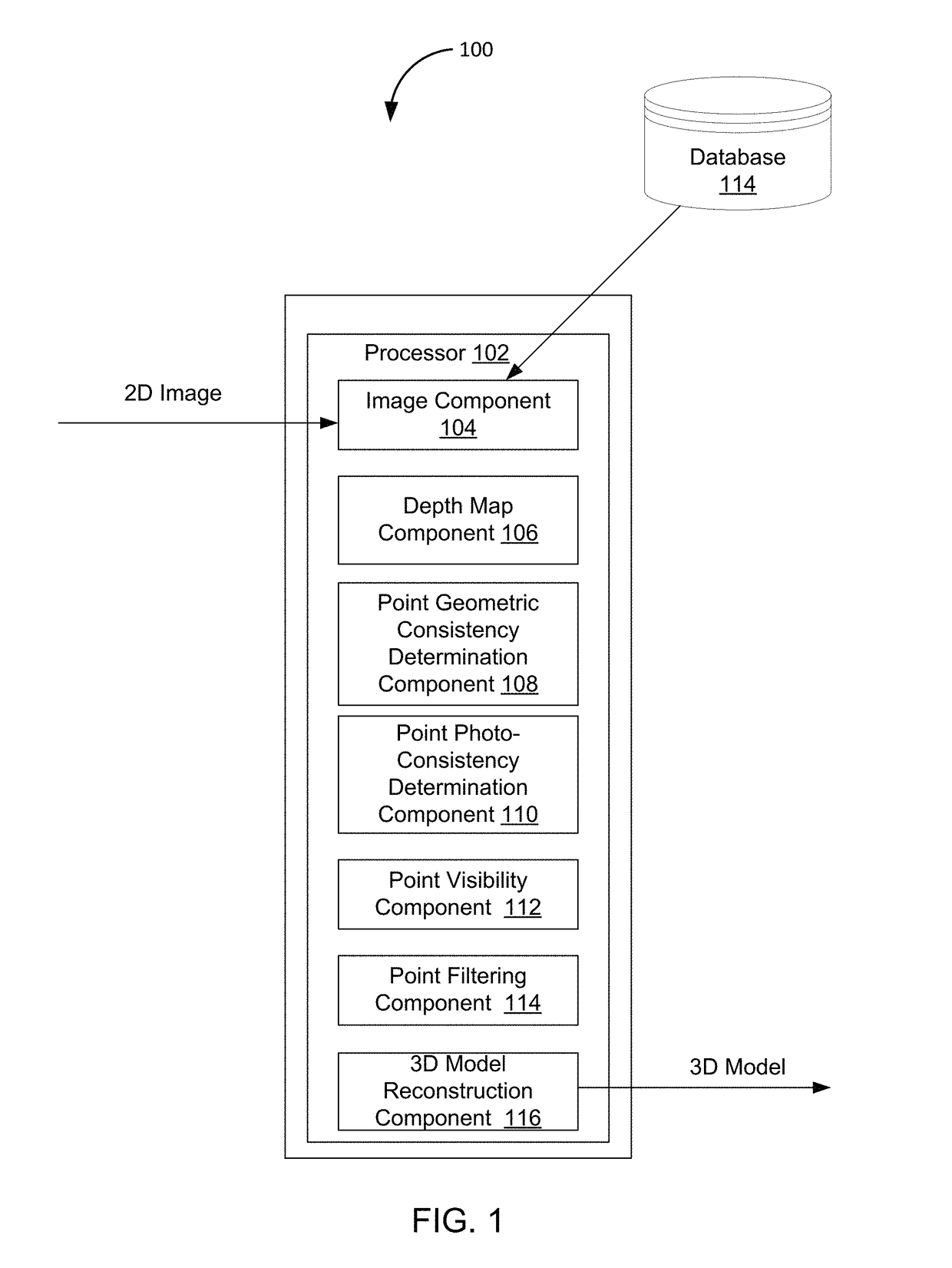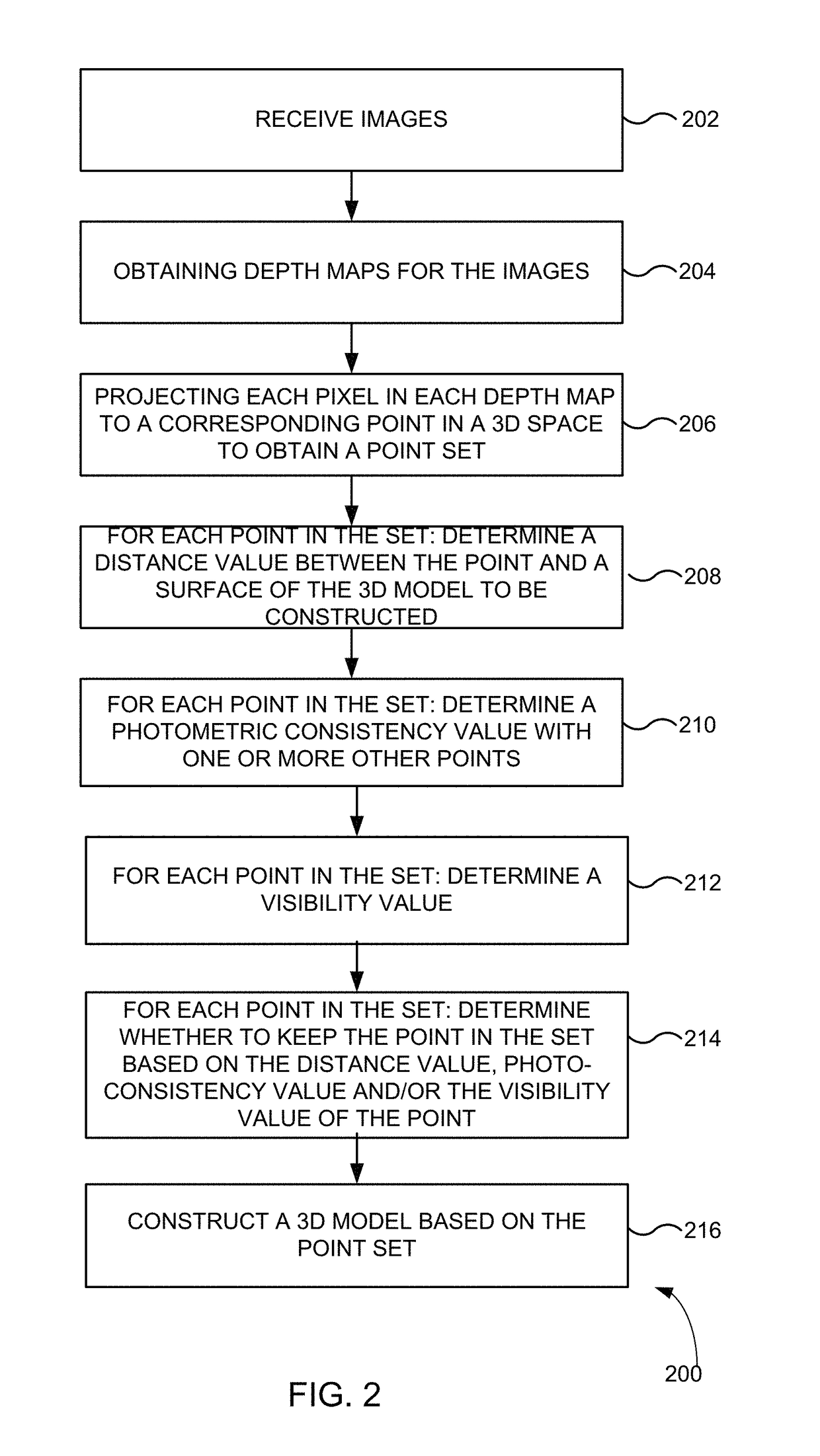Point cloud noise and outlier removal for image-based 3D reconstruction
a technology of 3d reconstruction and point cloud, applied in image enhancement, image analysis, instruments, etc., can solve the problems of destroying fine details, prone to producing outliers and noise in depth maps, and noisy clouds under that approach, so as to improve the quality, reduce the effect of noise and outliers, and improve the effect of removal
- Summary
- Abstract
- Description
- Claims
- Application Information
AI Technical Summary
Benefits of technology
Problems solved by technology
Method used
Image
Examples
Embodiment Construction
[0017]Embodiments can provide enhanced removing of noise and outliers from point sets generated by image-based 3D reconstruction techniques. Most multi-view stereo methods filter, smooth, or denoise the reconstructed depth maps, and often these steps are integrated into the depth estimation stage and formulated as a (global) optimization problem. However, these methods often leave a significant amount of noise and outliers in their final reconstructions, necessitating an additional outlier removal step for the point sets to be suitable for the later surface reconstruction phase. Various attempts have been made to remove the noise and outlier in the point sets. For example, techniques have been proposed to reconstruct dense depth maps from sparse point clouds which they use to remove points that are in significant visibility conflict and to augment the input point cloud. However, these techniques treat each view separately when densifying sparse depth maps and require the modificatio...
PUM
 Login to View More
Login to View More Abstract
Description
Claims
Application Information
 Login to View More
Login to View More - R&D
- Intellectual Property
- Life Sciences
- Materials
- Tech Scout
- Unparalleled Data Quality
- Higher Quality Content
- 60% Fewer Hallucinations
Browse by: Latest US Patents, China's latest patents, Technical Efficacy Thesaurus, Application Domain, Technology Topic, Popular Technical Reports.
© 2025 PatSnap. All rights reserved.Legal|Privacy policy|Modern Slavery Act Transparency Statement|Sitemap|About US| Contact US: help@patsnap.com



